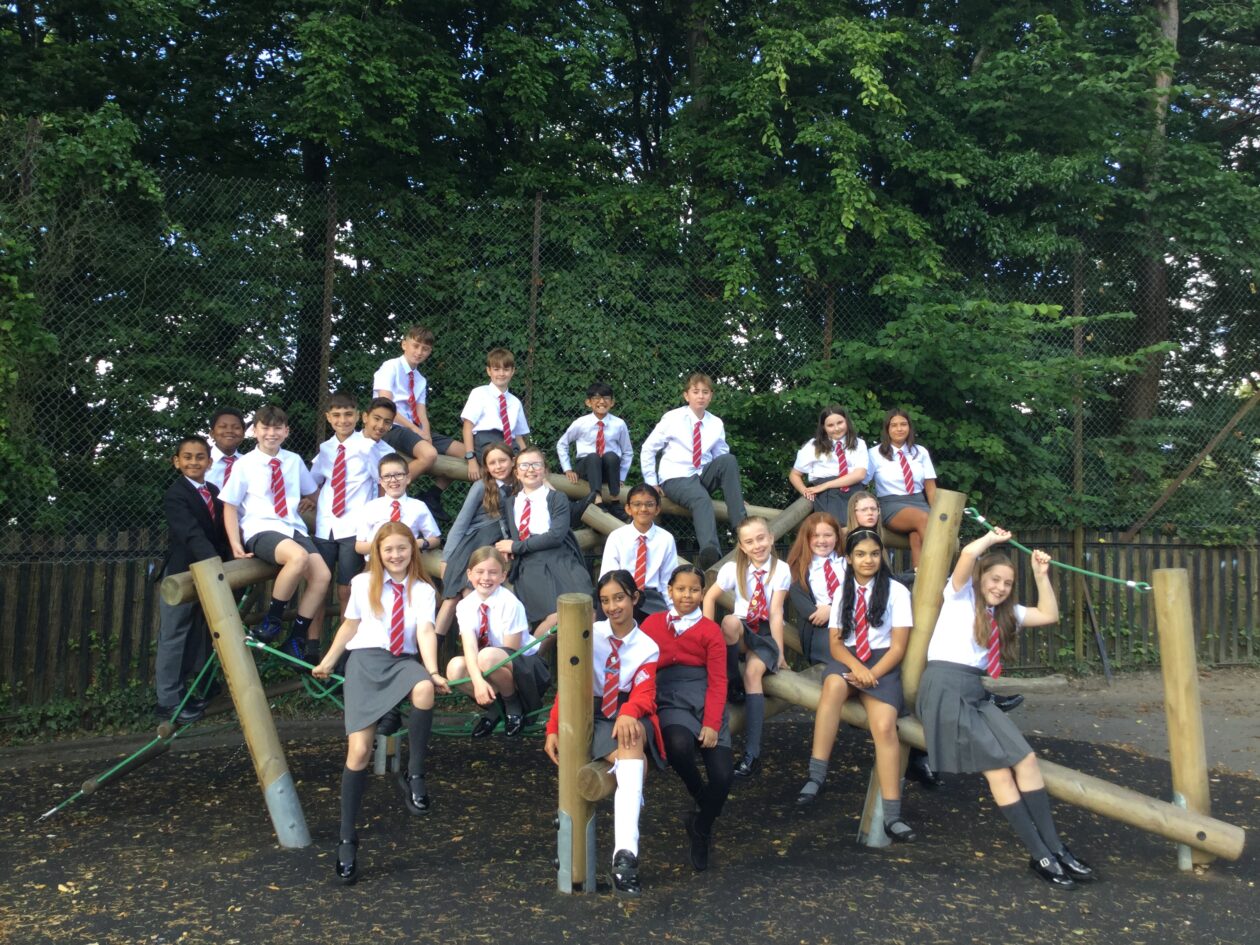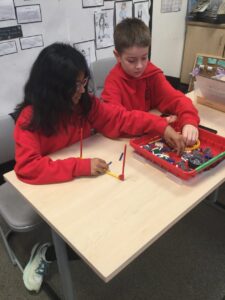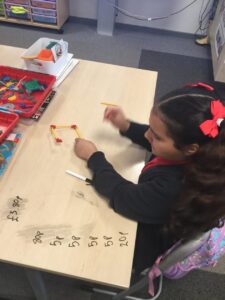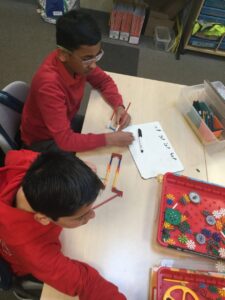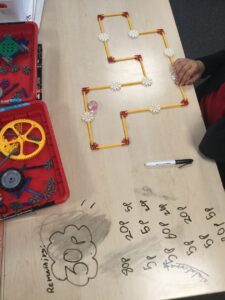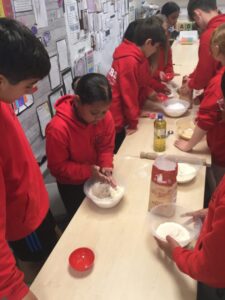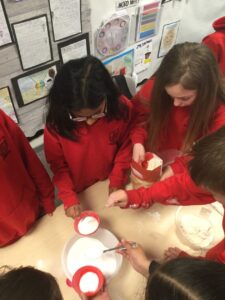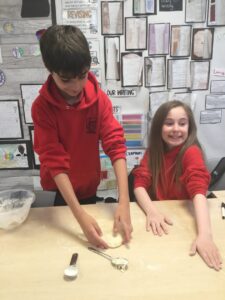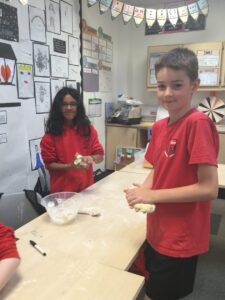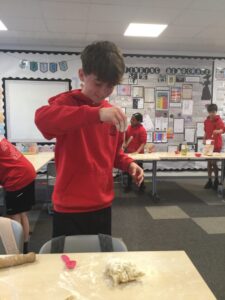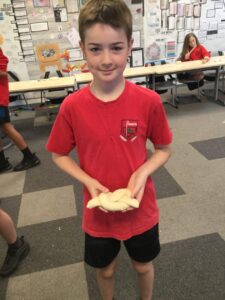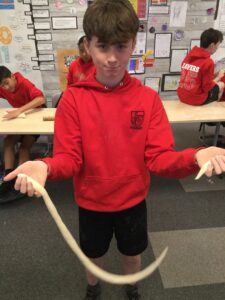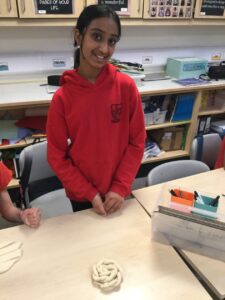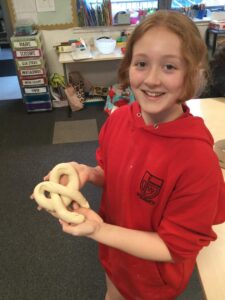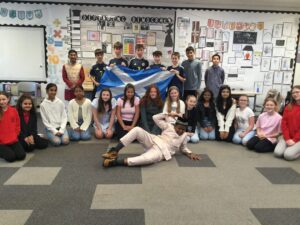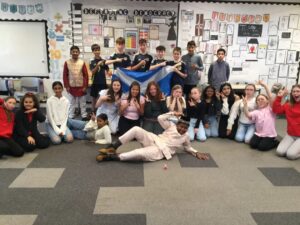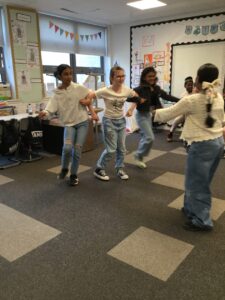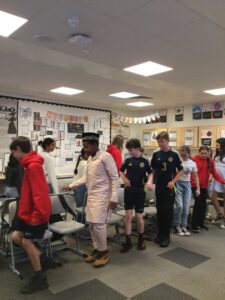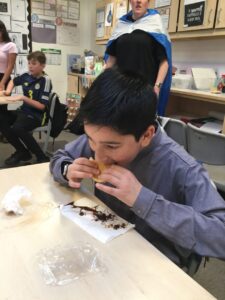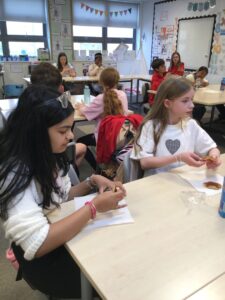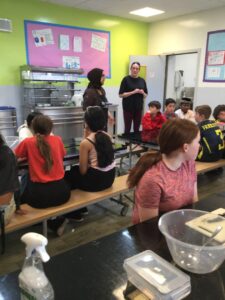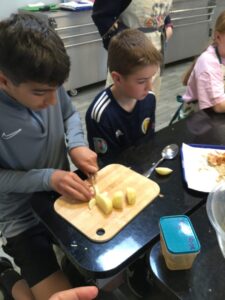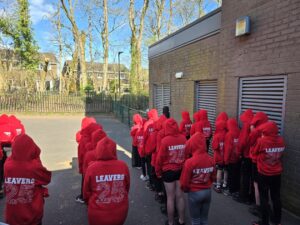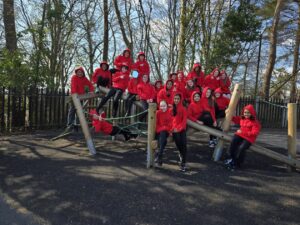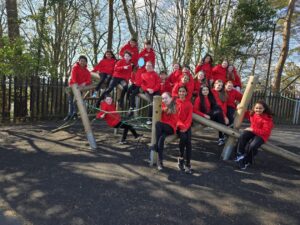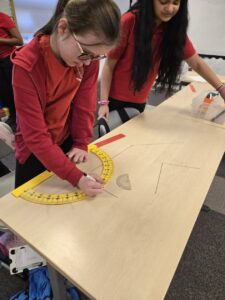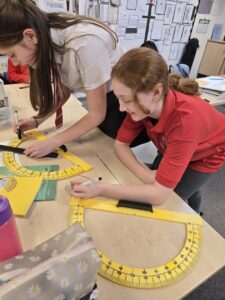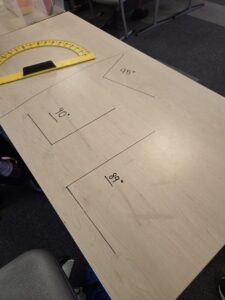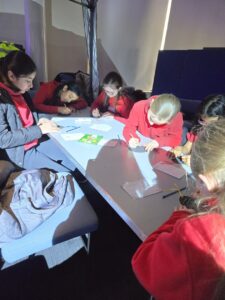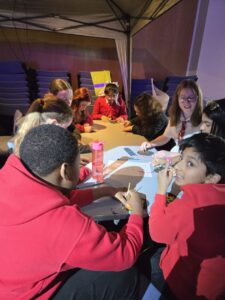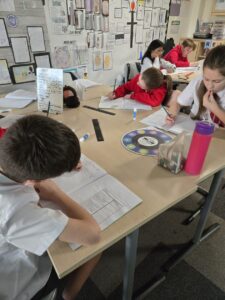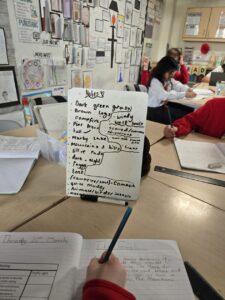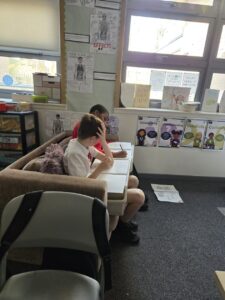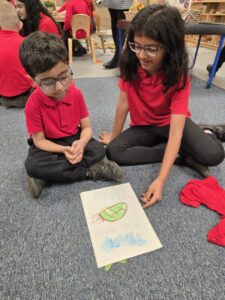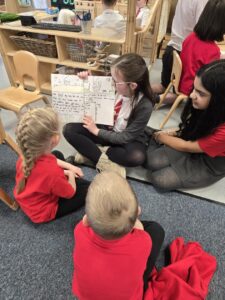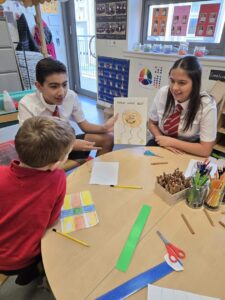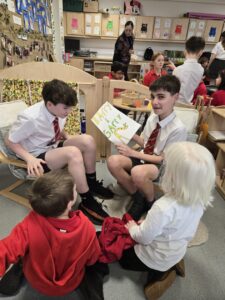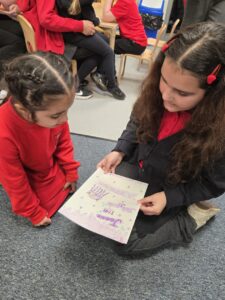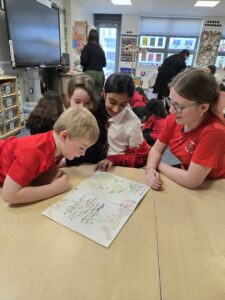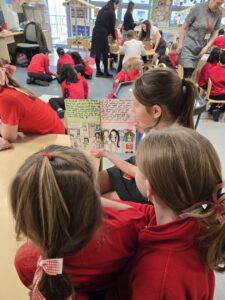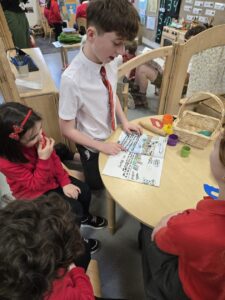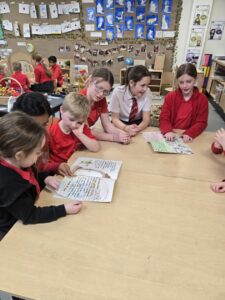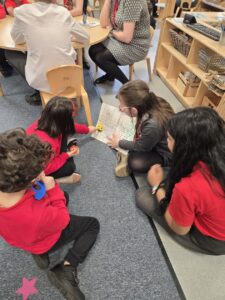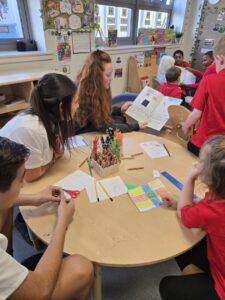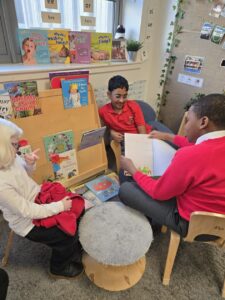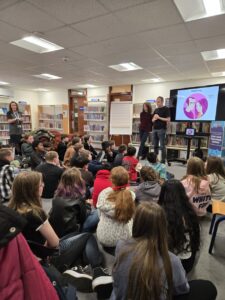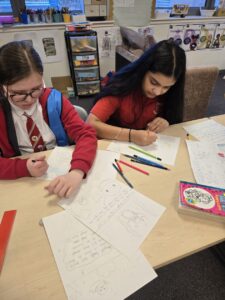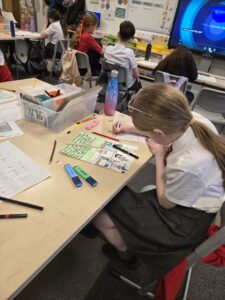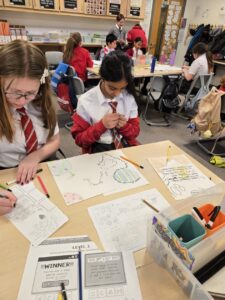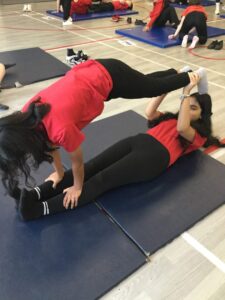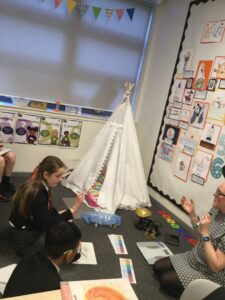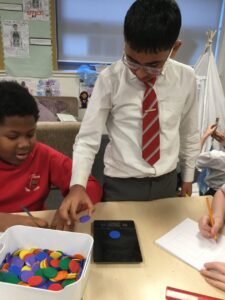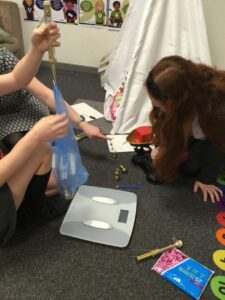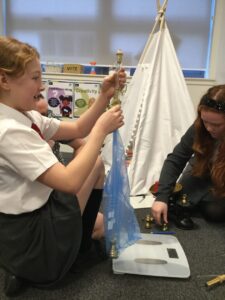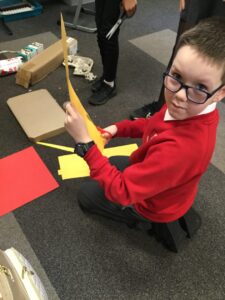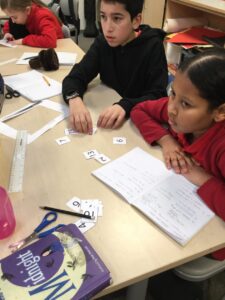Hi P7B readers, I wanted to update you on what we have been doing in our Learning Journeys since our last entry.
After finishing the STAT Wars Learning Journey, P7B started exploring how communicating and collaborating are life skills and the pupils were encouraged to reflect on how they use them everyday. The class recognised that they had utilised these two META Skills during their project work when we respectfully listened to each other, compromised and took turns. We have also learned about the importance of communicating our emotions which we did through expressing our thanks to Mrs Rasul for her wonderful teaching! We also applied our communication skills by writing an article about ourselves being local heroes in the future and we included a section about how we gave back to the community.
During our final Learning Journey exploring how batteries have evolved, we investigated what the components in batteries are and how devices are powered by them. We then created a timeline showing how batteries have developed over the years! We also learned about how modern items have inbuilt features to make them more energy efficient and we discovered the ways in which people can be wasteful with batteries. After discussing the impact batteries can have on the environment we created a diagram of the life cycle of batteries and discovered they can be recycled for many purposes including reusing the materials for grass fertiliser! Inspired from all of our research, Mr Atkinson challenged us to redesign devices that use batteries and to creatively replace them with alternative power sources. We also had a heated debate with groups arguing for and against if we can live in a world without batteries. In our final weeks, P7B discovered how to dispose of batteries correctly and made persuasive leaflets about why not to purchase single-use batteries.
Mr Atkinson
